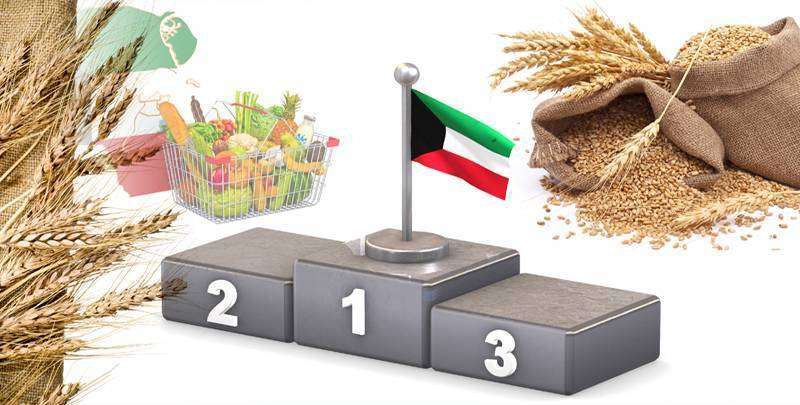While fears of the outbreak of a Russian-Ukrainian war have receded based on the signs that have emerged over the past few days, the government is prepared for all possibilities, by holding direct and indirect meetings between ministers and officials of relevant authorities, especially those related to food security.
Informed sources reassured Al-Rai that “Kuwait will not face food interruption crisis in the event of a war, but that commodity prices will be subject to a temporary rise,” explaining that a committee has been formed comprising members from the ministries of “Finance”, “Commerce” and “Oil” concerned with the food system to follow up on the situation and submit their reports to take the necessary action.
The sources stated that government meetings were held recently, some of which were held directly and others through contacting officials, and included ministers and officials in the authorities concerned with food security, led by the Minister of Commerce and Industry Fahd Al-Shariaan, officials of the Kuwait Ports Authority, the General Administration of Customs, the Kuwait Supply Company, the Union of Cooperative Societies, and Al-Mawashi company and two additional companies.
The sources said the discussions centered on food security and plans that can be used to compensate for any shortages that may occur if war breaks out between Russia and Ukraine.
Sources noted that the discussion took into account two scenarios, the first of which is the disruption of the flow of commodity supplies around the world and its complete halt, and the second if any of the countries exporting to Kuwait is forced to close their borders as a precaution.
The sources pointed out that “it was emphasized that the strategic stock of main commodities, especially cereals and meat, whether live or frozen, is in its best condition for this period,” noting that “the main commodities with long-term validity are sufficient for a period ranging between 6 and 12 months, and may exceed a year, taking into account the usual quantities consumed in the month of Ramadan.
The sources expected, in the event of a further slowdown in the supply chain, “there will be a rise in the prices of some commodities,” stressing that “the government will intervene to protect citizens and prevent them from being affected in this aspect if the increase is more than likely.”
Officials of ministries and agencies – according to the sources – ruled out the possibility of running out of any commodity locally in the event of the outbreak of war, stressing that “Kuwait’s import from Ukraine is limited, and that it is possible to resort to several alternative markets to compensate for any shortage that may occur in European supply chains, foremost of which is Australia, which is relied upon.
Locally, it is heavily involved in importing grain and meat, in addition to Uzbekistan, Turkey, Argentina, Brazil, Georgia and other compensating markets.
The sources noted that Kuwait’s import of meat is 40 percent from Australia, 50 percent from Iran and 10 percent distributed over 20 countries. The sources indicated that “the concerned authorities have expressed great satisfaction with their ability to contain any scenario, even in worst cases, thanks to the durability of the strategic stockpile that is constantly being reinforced at rates higher than normal,” revealing that “huge sea shipments of foodstuffs are on the way to reach the country soon.”
The sources pointed out that “the pressures that affected the countries of the world due to the Corona pandemic, raised the degree of food precautions in Kuwait, and the concerned authorities in the system had drawn a broad road map for dealing with crises — should there be any — with different compensatory scenarios.”

